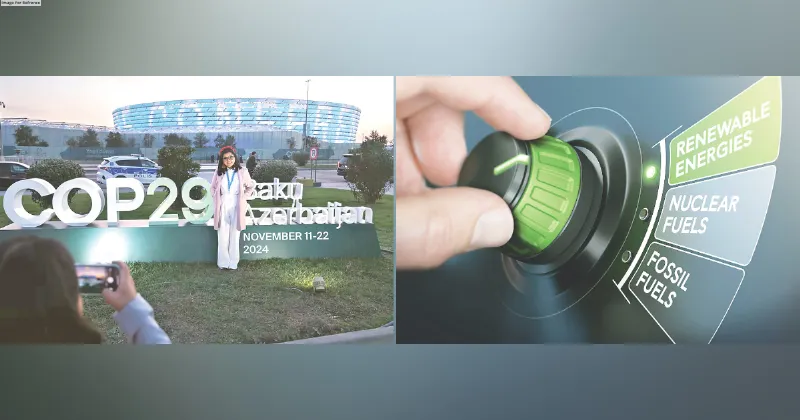Latest News
ARTIFICIAL INTELLIGENCE SHAPING THE FUTURE OF HUMANITY

Artificial Intelligence (AI) leverages computers and machines to mimic the problemsolving and decision-making capabilities of the human mind. AI is shaping the future of humanity across nearly every industry. It is already the main driver of emerging technologies like big data, robotics and Internet of Things (IoT), and it will continue to act as a technological innovator for the foreseeable future. Several examples of artificial intelligence impact our lives today. These include FaceID on iPhones, the search algorithm on Google, and the recommendation algorithm on Netflix. You’ll also find other examples of how AI is in use today on social media, digital assistants like Alexa, and ride-hailing apps such as Uber. In 2022, artificial intelligence will have progressed far enough to become the most revolutionary technology ever created by man.
Artificial intelligence or AI simulates human intellect to machines. AI-enabled machines are capable of performing some of the specific tasks better than humans and mimic human actions. There are four types of AI: Reactive machines AI: This is the most superficial level of AI. Reactive machines can do basic operations. They cannot form memories or use past experiences to make decisions like the IBM’s Deep Blue. Limited memory AI can store existing data and create better output by using the data like Tesla’s self-driving cars. Theory of mind AI can connect with human thoughts and interpret them better but these are still work in improvement or progress. Self-aware AI (a thing of the future) will have an independent intelligence, and it will make its own decisions. These machines will be smarter than the human minds.
JOBS AI CAN REPLACE
Based on the nature and type of jobs replaceable by AI are customer service executives, chatbots, bookkeeping and data entry, receptionists, proofreading, manufacturing and pharmaceutical work, pharmaceutical labs, retail services, and courier services.
JOBS AI CAN’T REPLACE
Human creativity knows no limits and hence fields of strategic thinking, leadership, conflict resolution and negotiation, emotional intelligence, and empathy are qualities in jobs that AI cannot replace at any point in time. Following are some of the professions which would stand the test of time: Human resource managers, Writers, Lawyers (limited to Evidence processing), Chief executives, Scientists (limited to support analysis of data), Psychiatrists, Public relations managers, Software developers, and Project managers.
The final goal of AI is that a machine can have a type of general intelligence similar to a human’s is one of the most ambitious ever proposed by science. The design and application of AI that can only behave intelligently in a very specific setting is related to what is known as weak AI, as opposed to strong AI. Strong AI would imply that a properly designed computer does not simulate a mind but actually is one, and should, therefore, be capable of intelligence equal, or even superior to human beings. As of today, all advances in the field of AI are manifestations of weak and specific AI.
The human brain is very far removed indeed from AI models, which suggests that so-called singularity-artificial super intelligences based on replicas of the brain that far surpass human intelligence-are a prediction with very little scientific merit. In fact, we can affirm that current AI systems are examples of what Daniel Dennet called “competence without comprehension”
TRULY INTELLIGENT AI
Among future activities, we believe that the most important research areas will be hybrid systems that combine the advantages of systems capable of reasoning on the basis of knowledge and memory use with those of AI based on the analysis of massive amounts of data, that is, deep learning. But they are more like black boxes with no capacity to explain and suffer from limitations of “catastrophic forgetting.” No matter how intelligent future artificial intelligences become, they can’t follow the same socialization and culture-acquisition and recognition of human values. The AI machines will inevitably carry some errors and ethical issues with social implications.
The new or latest developments in AI are the creation of new chips that help run deep neural networks faster. These chips can be used to train models to recognize images, speech and text more efficiently. Apart from this introduction of new AI concepts such as reinforcement learning, generative adversarial networks, and program synthesis. New algorithms allow for a greater level of control in operating rooms and medical centres around the globe. Similarly, self-driving vehicles and city infrastructure will benefit immensely from advanced AI algorithms and machine learning frameworks.
AI is now able to understand human emotions to some extent and has the capability to predict human behaviour. For example, some forms of AI can now tell if someone is lying or not. AI can now also be used for social good and in the future maybe even save lives and prevent crimes. Second, they allow us to predict what will happen in the future by using AI to create forecasting models that can tell us about future events or changes in trends. And finally, they help us understand how people behave and react so that we can improve our own behaviour and reactions as well as develop better customer service based on what people want and need. As AI forays into every aspect of human life, it is time for intervention by responsible actions by policymakers as well as industry stakeholders to counter its possible misuse.
THE VIEWS EXPRESSED BY THE AUTHOR ARE PERSONAL
COL RAJESH BHUKAR The author is a Post Graduate in International Studies, Alumni of Defense Services Staff College, Wellington and College of Combat, Mhow





















